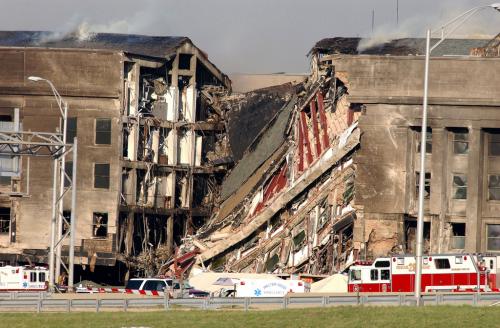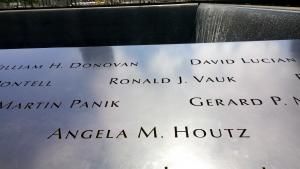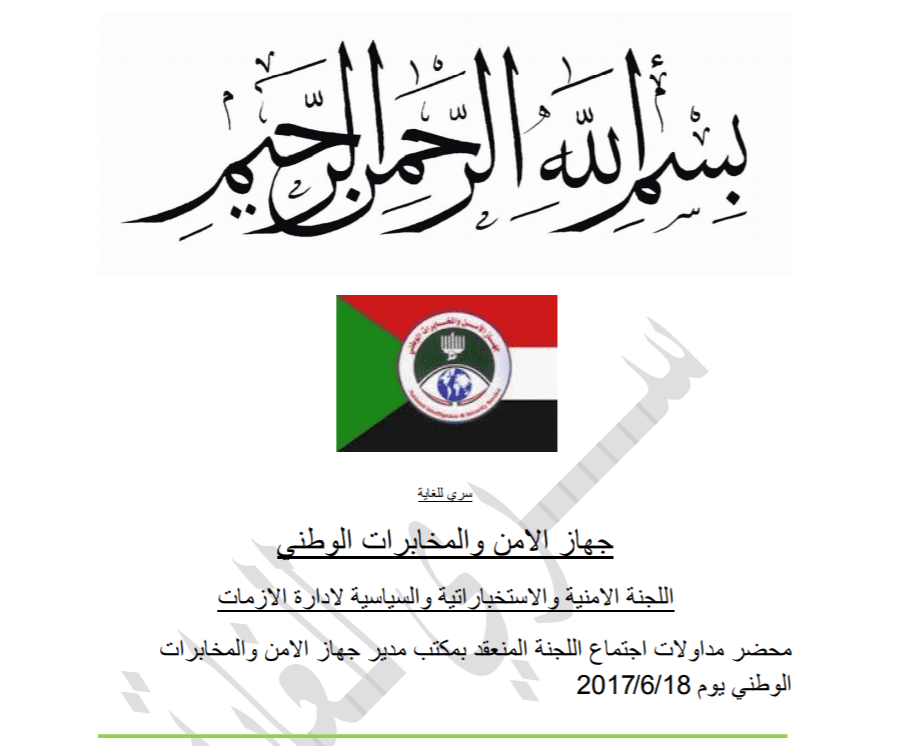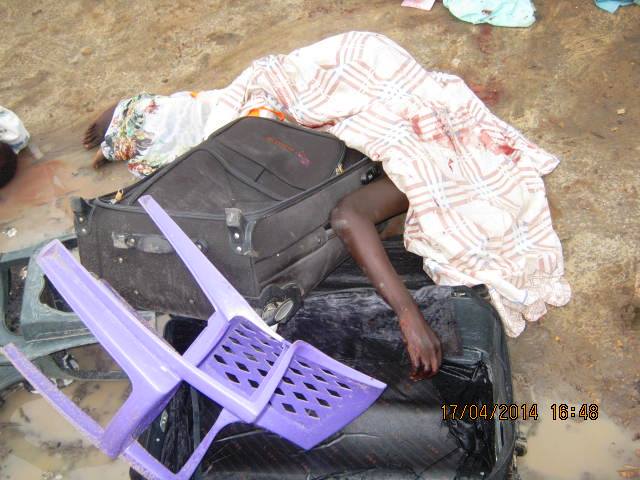
Angela Houtz
September 6, 1974-September 11, 2001,
Rest in Peace and Rise in Glory
A couple of months ago I stopped at a car wash. It was a fundraiser for the church that now owns the building that had once belonged to my church. As I sat in a lawn chair outside that familiar structure watching a dad and his two children soap up my car, I suddenly remembered that I had washed about 20 cars in that very spot when the building was ours. It was on Saturday, September 15, 2001.
Our car wash to raise funds to help the survivors of the attack on the Pentagon. We were stunned, grief stricken, and angry like the rest of the nation. And of the many ways in which we were affected personally was that one of our own had been killed when the jihadists weaponized American Airlines Flight 77. Her name was Angela Houtz, but we called her Angie. Angie, a civilian employee for the U.S. Navy at the Pentagon, was only 27 when her life ended on 9/11.
 Angie, pretty, friendly, with wavy dark hair and sparkling brown eyes, had both an infectious smile and an infectious faith that affected all who knew her. She said of her own faith journey that it totally changed when began attending Church of the Apostles in Fairfax, Virginia. She glowed when she said one Sunday that she now understood that God is “very personal and wants to have a relationship with us.”
Angie, pretty, friendly, with wavy dark hair and sparkling brown eyes, had both an infectious smile and an infectious faith that affected all who knew her. She said of her own faith journey that it totally changed when began attending Church of the Apostles in Fairfax, Virginia. She glowed when she said one Sunday that she now understood that God is “very personal and wants to have a relationship with us.”
Besides both being members of Church of the Apostles, Angie and I shared two things. We were both born on September 6, something that I did not know until she died. In addition, Angie took over the leadership of a ministry that I had started many years before, the Grate Patrol. The Grate Patrol prepared meals and served them to the homeless on the streets of Washington, DC.
Just a few months before she was killed, Angie said:
I think God really wants to use us to be involved in different ministries, to be involved in our workplaces. He has a plan for us and we are his Ambassadors. He could just go out and transform lives by Himself if he wanted to, but there is a reason why he wants us to be involved and to get out there, and I think we need to pay attention to his calling and see where he wants to use us to impact our community.
Angie paid attention.
Angela Houtz was the Salutatorian of her graduating class at Maurice J. McDonough High School in Pomfret, Maryland in 1992. She received a full scholarship in the humanities program at the University of Maryland Baltimore County (UMBC).
She interned with the Office of Naval Intelligence in Suitland, Maryland, and when she graduated Angie was offered a permanent position. According to the Pentagon Memorial Fund website, Angie “was recommended for a position in the Pentagon, working for the Chief of Naval Operations Intelligence Plot, where she also served as the Naval Intelligence Watch Officer in the Navy Command Center.”
After that, the Pentagon Memorial Fund website notes that “she returned to work at Suitland and the Office of Naval Intelligence” until her most recent appointment as Senior Analyst at the Pentagon. Angie came back to the Pentagon in October 2000 after the bombing of the USS Cole. She was made the senior day analyst at the Chief of Naval Operations Intelligence Plot (CNO-IP). It was the third-ranking job in the 28-person unit. Angie was the youngest person to have ever held the position.
Angie took her ministry as seriously as she did her work for the Navy. On Thursday nights, she could be found barreling through the streets of Northwest Washington, DC in a Salvation Army “canteen” truck, giving a hot meal to the homeless men and women sleeping on the steam grates.
As the leader of the Grate Patrol, Angie recruited volunteers for the shopping and for cooking a hot evening meal for about 100 homeless people. Every Thursday, other church members would cook four large electric roaster ovens of soup, stew, or chili, make sandwiches, and sometimes bake special treats like cookies and brownies. But when it came to serving the food, she was always there herself, with recruits in tow.
Angie rarely missed a Thursday night’s patrol of the grates that took her from Constitution Avenue to Lafayette Park to the E Street Expressway at Virginia Avenue to right outside the Watergate Hotel, and others in between. She would check up on Jacob’s sore leg; she would laugh with James; she made sure that Willie had a blanket; she prayed with Michael; and she was always a gentle reminder of God’s love for those forgotten by most of the high-powered world of Washington.
On the mirror of her bedroom dresser, Angie kept a Bible verse that reflected the significance of her highest level security work at the Pentagon, monitoring the ongoing geopolitical and military movements that could be a threat to American forces. The verse was Nehemiah 6: 3, “I am carrying on a great project and cannot go down.”
In “The Last Watch,” a January 20, 2002 tribute to the victims at the Pentagon in The Washington Post, Richard Leiby describes the verse as “a quotation from an Old Testament leader who set about rebuilding a great wall to protect Jerusalem, who put watchers on his wall, and refused to leave it.”
Leiby says that Rear Admiral Richard Porterfield, the director of Naval Intelligence, who called Angie and her team members who were killed “the Magnificent Seven”, told Angie’s parents that the verse would appear on a memorial at the National Maritime Intelligence Center in Suitland.
I think about Angie a lot, especially on September 11. But over the past year I have remembered her in a new way, because of Nehemiah 6: 3.
In her honor, I call the project that I working on for South Sudan The Great Project. Every time I use the term, I think of Angie and her faith that whatever may come, God will see things through. She would be happy that her verse is being used for a project that will help the people of South Sudan.
Angie Houtz was carrying out two great projects. Pentagon Naval Intelligence and the Grate Patrol are worlds apart. But they intersected naturally in the life and service of a young woman whose highest calling in life was doing the will of the God that she loved.
A song asks, “When it’s all been said and done, there is just one thing that matters. Did I do my best to live for Truth? Did I live my life for You?”
For you, Angie, the answer is yes.













